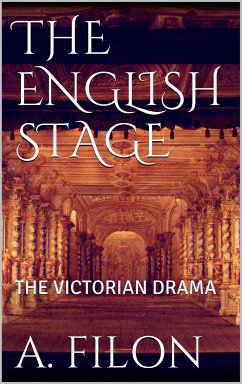There are, in the England of to-day, two schools of dramatic criticism, whose divergence of opinion is clearly marked. They are called “New Critics” and “Old Critics,” though accidents of date or age are hardly at all accountable for their antagonisms; it is possible that during the next few years the old criticism may become rejuvenated and that the new criticism may age. For my part, I have sided with neither the one nor the other, because the rôle of neutral is best suited to a foreigner. I have supplemented my own personal impressions by quotations, taken impartially from both camps, of what has struck me in their criticisms as noteworthy, or happy, or true. I think that the new school is right in wishing to free the English theatre from foreign influences, and in its efforts to give the drama a moral value and an ideal. But I think the old school is not far wrong when it defends, to a certain extent, the more popular forms of dramatic art, and when it would have the drama follow the indications of success, and not isolate itself from that public of whose feelings it should be the living expression.
Dieser Download kann aus rechtlichen Gründen nur mit Rechnungsadresse in A, B, BG, CY, HR, DK, EW, FIN, F, D, GR, IRL, I, LR, LT, L, M, NL, PL, P, CZ, R, SK, SLO, S, H ausgeliefert werden.









